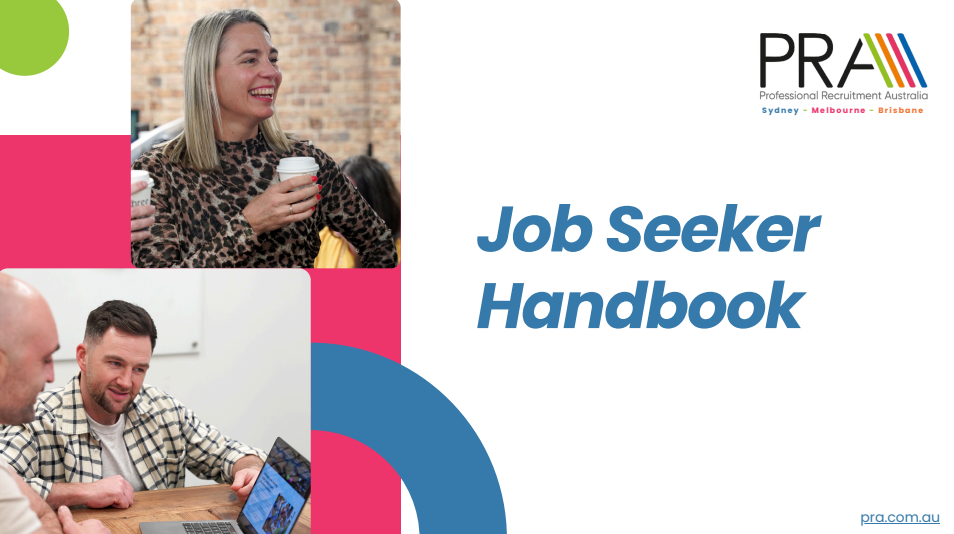BREAKFAST DISCUSSION: CYBERSECURITY - September 2013, PRA Office Brisbane
Please join us for a new PRA’s breakfast discussion led by Dr. Tim Redhead - Director DotSec, Dot com Security as he shares insights on today’s organisations digital security – or lack of.
Over the past few years, the net has been awash with examples of organisations that have been extensively compromised without a trace, sometimes for years at a time. Whatever the origin of the attack, from the star employee who arranged VPN connectivity to unknown overseas third-parties, to the top-of-the-line security contracting company that now does not exist, the consequences are the same: extensive, sometimes near-total, exfiltration of core assets and IP.
During the presentation, enjoy a healthy catered breakfast and find out options and solutions to a growing number of digital security attacks. The reporting examples used during the presentation will be relevant, whether your information infrastructure is hosted in-house, with some kind of hosting/cloud provider, or a combination of both. In addition, a real-time event management and alerting services will run in the background, providing live feedback on incidents that are occurring while the presentation is taking place.
Dr Tim Redhead
established and now directs the operations of DotSec, an expert information-security company based in Brisbane, Australia. DotSec provides specialist information-security design, integration and testing, as well managed security services, to clients in the finance, legal, investment, banking, education, transport and government (local, state and federal) sectors.
Prior to establishing DotSec in 1999, Tim led the operations of the security group at the Distributed Systems Technology Centre, a cooperative research centre that operated between 1992 and 2006.
Tim received his PhD in computer science from the University of Queensland in 1997, after being awarded first class honours in computer science from James Cook University.

The AI Authenticity Gap: Why Your AI-Generated CV Might Be Costing You the Job I see hundreds of CVs every week. I spend more time on LinkedIn than I care to admit. And one thing that's becoming increasingly prevalent is the appearance of overly authored posts and descriptions with plenty of words but precious little substance. Much of this has coincided with the widespread adoption of tools like ChatGPT. As someone working adjacent to the tech space, I was genuinely excited when AI started making waves across the world. I thought this was going to be a real game changer, and in many ways, it has been. But the overuse of generic AI-generated content has become so prevalent that I feel some people are now failing to show their authentic voice - the very thing that makes them stand out in a competitive market. The Early Adopter's Reality Check I was one of those people who tried to adapt early to AI, using it to help me in my professional and personal life. But here's the crucial difference: I didn't just accept the standard output I was given. I took the bones and made them my own. I used AI as a tool, not as a ghost-writer. Too often now, I see CVs that have been completely assembled by ChatGPT - so generic, so obviously automated, that I genuinely feel the candidate would have been better off not sending anything at all. These applications don't just blend into the background; they actively work against the candidate by signalling a lack of effort and authenticity. The Numbers Don't Lie Recent research validates what recruiters like myself are seeing daily. A May 2025 survey of 600 U.S. hiring managers revealed some startling statistics: One in five recruiters (19.6%) would outright reject a candidate with an AI-generated resume or cover letter Over a third of hiring managers (33.5%) can spot an AI-generated resume in under 20 seconds 58% of hiring managers express concern about AI-generated applications Think about that for a moment. Hiring managers are detecting AI-written CVs in less time than it takes to read a single paragraph. The very tool candidates think gives them an edge is often the red flag that gets them filtered out. The Efficiency Versus Laziness Debate When ChatGPT first emerged, many of my colleagues said outright that this was going to make people lazy. I argued against that view. I believed that just as Excel made formulating reports easier without making us worse at analysis, ChatGPT would help people be more efficient in their work - freeing them up to focus on strategic thinking and creative problem-solving rather than getting bogged down in formatting and structure. I still believe AI can be a powerful efficiency tool when used correctly. The problem is that many candidates aren't using it to enhance their work; they're using it to replace their work entirely. The Personal Touch in an AI World While improvements are being made to make AI-generated content seem less generic, there's a fundamental issue when you're putting forward something meant to be a representation of yourself. Your CV is your professional story. It's your opportunity to showcase not just what you've done, but who you are, how you think, and what makes you different from the hundreds of other applicants. When you rely on AI to put it all together, you lose all control and that crucial personal touch. The research backs this up: Baby Boomers and Gen X hiring managers are particularly sceptical, with one in four Baby Boomer managers likely to reject fully AI-generated resumes. Even among younger Millennials and Gen Z managers, who you might expect to be more accepting of AI use, there's a clear expectation that the final product must sound human, show real effort, and reflect the individual behind the words. The Right Way to Use AI in Your Job Search By all means, use the tools available to you. AI can be excellent for: Brainstorming bullet points you might have forgotten Identifying gaps in your experience narrative Improving grammar and clarity in your existing writing Suggesting different ways to frame an achievement Creating a first draft structure that you then completely personalise But don't think that because you can do something quickly and easily, you're going to get the same results as someone who actually takes the time to show they've invested effort. The data shows that 74% of hiring managers have encountered AI-generated content in applications, and they're becoming increasingly adept at spotting it. Standing Out in a Tough Market It's a challenging market out there in many sectors of the technology industry. If you want to stand out from the crowd, you need to ensure you can show exactly who you are. That means: Write in your own voice - Not the corporate-speak that AI defaults to Include specific examples - Generic achievements sound hollow Show your personality - What drives you? What excites you about your work? Customize for each role - AI-generated applications often feel one-size-fits-all Proofread beyond grammar - Does this sound like something you would actually say? The Bottom Line The irony is that in trying to use AI to save time and improve their chances, many candidates are actually undermining themselves. They're creating a sea of sameness in which their application drowns rather than floats to the top. Remember: hiring managers want to hire people, not algorithms. They want to understand your unique perspective, your problem-solving approach, your communication style. They want to see evidence that you've put thought and effort into your application because that's a strong indicator of the thought and effort you'll put into the job itself. Use AI as a tool in your toolkit - but make sure the final product is unmistakably, authentically you. That's what will make you stand out in 2025 and beyond. Need help crafting a CV that showcases your authentic voice while still being competitive in today's market? Get in touch, I'd be happy to provide guidance on how to strike that perfect balance between efficiency and authenticity. Article written by: Jack Davies PRA Brisbane Associate Consultant - Development and Testing M: 0483 969 454 E: jack.davies@pra.com.au

“I’ve been applying for jobs for months, and I’ve had lots of interviews, but I keep coming second, or they cancel the role, or put it on hold, and I’m starting to get worried about how I’m going to pay my bills”. I have had this conversation, or one that sounds just like it, with lots of candidates in the past few months, and it’s agonizing for them and weighs heavily on me. The part of my job I love the most is helping people put their best foot forward, highlight their skills that really matter, and hone in on what they love doing most; and help them find the role that fits that. So - aside from a tough economy and a tighter job market, what are some of the common challenges I’m seeing candidates who are job hunting have? 1) They’ve been in a job with a weird job title, or a weird mix of responsibilities/ delegations, and now they aren’t sure where they fit- which makes applying for roles and selling themselves feel hard 2) They’ve been in really senior roles, that aren’t as abundant as, well, less senior roles, and so with more competition in the market, they don’t know what to do if they can’t do the type of work they’ve been doing to date (or earn the salary they’re used to) 3) The expectations of the job they used to do have changed (due to things like AI), and so now an introverted and shy developer doesn’t have the same value proposition as a ‘consultant’ type, who can be an “analyst/programmer” or future consultant/prompt engineer. But while the job market is tough, it’s not without opportunity, and more importantly, you’re not alone in navigating it. We’re here to help guide you through it with expert advice, encouragement, and practical tools. A couple of general job-hunting ‘first impressions count’ considerations, presentation and communication: Presentation: During Covid, when everyone was working from home, for some, professional presentation standards slipped a bit — and now the market is correcting. Unfortunately, most companies do judge a book by its cover. The Halo Effect is a well-known psychology concept. If you look well-groomed and put together, people subconsciously extend that positive impression to other qualities — like competence, reliability, and honesty. This is a cognitive shortcut our brains take when forming quick judgments. Additionally, Risk Assessment Bias is a bias that means humans are wired to make rapid judgments about safety and trustworthiness — and appearance is one of the first cues we use. If someone looks orderly and conventional, it’s often interpreted as “low risk” compared to someone whose presentation is far outside the norm. Communication: Communication is universally recognised as one of the most important requirements in a new hire. In 2025, business insider highlighted that communication was the most in-demand skills even in technology where AI is advancing. While a 2025 report reveals that 92% of hiring professionals now say soft skills—including communication—are just as important as technical skills. Can you confidently say that communication is your strongest skill? Have you worked with a career coach, vocal coach or mentor to talk about how you might improve your communication skills and/ or interview skills? Recruiters are an invaluable resource to ask to provide feedback on how you interview, and if your communication skills could be improved in any way. ChatGPT can also help with suggesting and refining answers to interview questions so you can practice before a face-to-face interview. Now that piece is sorted, let’s talk about strategies you can leverage to move forward. To begin, I’ll address my first point listed at the start of this article: 1) You’ve been in a job with a weird job title, or a weird mix of responsibilities/ delegations, and now you aren’t sure where you fit. This is a great time to chat to a recruiter or a career coach (who specialises in your industry), and ask them where they think you fit, or what kind of job titles you should be looking at on job boards. An exercise I often ask candidate’s I’m working with to complete is to go on Seek and look Australia wide at jobs that are in the general ballpark of what they do, and start reading the responsibilities of these roles- note the job titles being used, and see if the job titles and responsibilities align with what they’ve been doing, and update their CV to include these key terms of titles (only if they are applicable of course!). Sometimes what you’ve been doing vs. how it’s described in other companies isn’t the same, so make sure you’ve got common language between your resume and the job ads on job boards like Seek and LinkedIn. Sometimes it’s also appropriate to have more than one CV- perhaps your most recent role was a blend of both program manager and General Manager and one CV highlight both of these things can send mixed messages, and it may be worth breaking down the responsibilities for each into two separate documents, depending on the role you’re applying for, so you don’t spook anyone that you’re “too senior” OR “too junior”! 2) You’ve been in senior roles, that aren’t as abundant as, well, less senior roles, and so with more competition in the market, you don’t know what to do if you can’t do the type of work they’ve been doing to date (or achieve the salary you’re used to). The reality of being a senior professional is that senior roles aren’t as abundant as junior roles- so this may mean looking at interim roles in the meantime, that you are qualified to do, and can still enjoy, while you wait for the perfect opportunity to arise. If you are a Director of Engineering, this might look like considering Scrum Master or Iteration Manager roles (on a contract ideally, so you’re not leaving people in the lurch when your dream role comes along in the medium term). If you’re an Operations Manager, perhaps looking a process improvement roles or other coordination type roles (depending on the nature of your role) could be an ideal stop gap. Once again, it may be worth having two CV’s that highlight the respective skills you have at a more senior level and a less senior level. 3) The expectations of the job they used to do have changed (due to things like AI), and so now an introverted and shy developer doesn’t have the same value proposition as a ‘consultant’ type, who can be an “analyst/programmer” or future consultant/prompt engineer. The key here is to lean into your strengths while building complementary skills that boost your value proposition. Let’s be clear- you don’t need to suddenly become an extrovert, but you can focus on improving communication in structured, low-pressure ways—such as writing clear documentation, preparing concise updates for stakeholders, or practicing short explanations of your work to non- technical audiences. Positioning yourself as someone who can translate complex technical detail into understandable insights can be just as valuable as being outspoken. You should also highlight adaptability, continuous learning, and curiosity about AI and new tools, framing yourself as forward- looking rather than resistant to change. Even small steps—like taking an online course in business analysis, practicing interview answers that show problem-solving impact, or learning prompt engineering basics—signal to employers that they’re evolving into the “analyst/programmer” or consultant type the market increasingly demands, without abandoning the core technical expertise that still underpins your strength. You’re Doing Better Than You Think In tough times, it's easy to feel like you’re falling behind. But if you're actively job searching, applying, or even just considering your next move, you're already making progress. Finding a job today isn’t just about luck. It’s about persistence, strategy, and being open to possibilities. Whether you are in-between roles, switching careers, or starting fresh, every step you take is a step forward. What Else You Can Do Right Now In addition to the above, here are some practical tips to help you stay focused and confident in your search: 1. Look for a career, not just a job Now is the perfect time to reflect on where you want to go long term. Look for roles that match your values, skills, and ambitions, not just your current needs. 2. Upskill and refresh your toolkit Short courses, certifications, and workshops can dramatically boost your employability. 3. Be flexible — and open-minded Part-time or contract work can often lead to permanent opportunities. Don't be afraid to explore new industries or ways of working. 4. Get expert support This is where we shine. PRA offers personalised advice, résumé help, interview coaching, and real market insights to help you stand out. The PRA Jobseeker Handbook We know the job search can feel overwhelming, so we’ve created a resource to make it easier. Our Jobseeker Handbook is a free, downloadable guide full of practical advice to help you: Build a standout résumé and cover letter Prepare for interviews with confidence Access the best job boards and training resources Map out your career goals and steps to get there Whether you're fresh out of university, returning to the workforce, or shifting careers, this guide will support you every step of the way. So don’t give up. Keep going. And when you're ready, we're right here beside you. At PRA, we don’t just place people into jobs, we help build careers. Professional, experts, fun and approachable that’s who we are, and how we show up for you. Article written by: Carrah Jordan | PRA Director – QLD P: +61730717200 M: +61483950845






